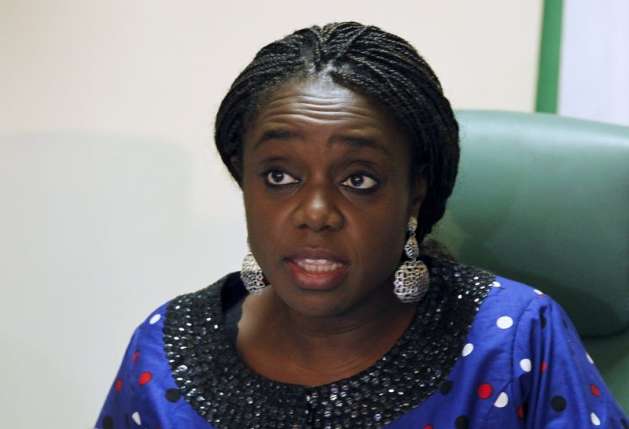The reluctance of the Godwin Emefiele led Central Bank of Nigeria (CBN) to allow a proper pricing of the naira has not only distorted pricing of foreign exchange in the market but is also distorting economic growth.
Despite announcing with fanfare, a decision to allow a free float of the naira on 20 June, industry sources tell BusinessDay that the apex bank has kept a tight lid on the pricing of the dollar, preferring instead to sell its stock of dollars to dealers who bid low for the currency, rather to those who bid higher for the scarce dollars in its vaults. The result is that the foreign investors whom the decision to float the naira was meant to attract, have since abandoned the market for the CBN which now supplies more than 90% of the dollars in the interbank market.
“Why would a nation facing major challenges with its foreign exchange reserves sell same to the lowest bidders, even as it is unable to meet the entire demand for its market, leaving the highest bidders with nothing? Is this a mark of a credible foreign exchange system?” That query from one dealer represents the widespread concern in the market.
Since the CBN introduced the “free float” system, the country’s external reserves have dropped from US$26.3 billion on 20 June to US$23.95 billion on 27 October, a decline of $2.35 billion within the period. The CBN has also spent an estimated US$5 billion to clear the backlog of foreign exchange arrears but the arrears keeps piling up, as all those who need foreign exchange pile up into the interbank market seeking to get the under-priced dollars from the CBN.
Emefiele’s reluctance to allow a proper float has created significant price distortions for the dollar, depending on the window through which it is being accessed. On the CBN’s website, the naira is quoted at N305 to the USD. However, those travelling out of the country will have to buy it at about N370 from Travellex, while it is sold at about N480 in the unofficial black market, sending confusing signals to investors on the true value of the naira.
The spread between the official and unofficial market is now at an all time high of N175, an attractive arbitrage opportunity for those who have access to the official market rate.
“The disequilibrium in the foreign exchange market commands a hard look at the CBN’s current foreign exchange policy stance and a brutal assessment of the effects of same on the market, and by extension the economy, for an opportunity for urgent remedial actions to be taken,” dealers say.
Average value of dollar traded in the interbank market has fallen from a high of $442.17 on 24 June, when dollar trading hit its peak to a low of $73.48 on 14 October. Also, the weekly value of dollars traded has dropped from a high of $2.22 billion to a low of $367.41million within the same period. Dealers tell BusinessDay that the declining value of traded dollars in the interbank reflects the low confidence and uncertainty in the interbank market.
Traders in Nigeria’s Foreign Exchange (FX) market admit they are losing confidence as dollar supply continues to thin out.
“The decline in turnover reveals a worsening state of affairs in the foreign exchange market, and leaves investors (foreign and local alike) with nothing to desire in the once buoyant and vibrant market,” a trader told BusinessDay.
Market participants say “the increasing level of uncertainty and the attitude of the Central Bank of Nigeria (CBN) in administering and managing its foreign exchange policies leaves them wondering “if there is a near-end in sight for the dollar woes.
“How much longer can the economy withstand the pressures caused by this unstable and highly fragmented market?”
Liquidity is also drying up in the parallel market as Diaspora remittances slow down due to the unfavourable rate they are getting from the International Money Transfer Operators (IMTOs). Diaspora remittances constitute the second largest source of foreign exchange inflows into the country.
“Supply from the International Money Transfer Operators (IMTOs) sold to the BDC/parallel markets is dwindling because a fixed foreign exchange rate is being offered to Nigerians in the diaspora by the IMTOs,” traders say.
Market watchers say the earlier the CBN appreciates the need to promote a single foreign exchange market; the better it will be for the market and by extension, the Nigerian economy.
“The BDC/parallel markets are being used as the yardstick for determining the true level of the Naira,” said a dealer.
The investment banker says this is an anomaly, given that the markets are shallow and do not accurately depict the measure of the bulk of activities that should be taking place.
Market participants say the dearth of credible information and transparency are forcing a migration to the closest thing to credibility and transparency it can find in the parallel market.
Analysts see a ₦500 to US$ exchange rate in the near-term, if the CBN does not promote a credible foreign exchange market.
Dealers in the market advise that the CBN loosen its control of the market and rather focus on the control of operators.














